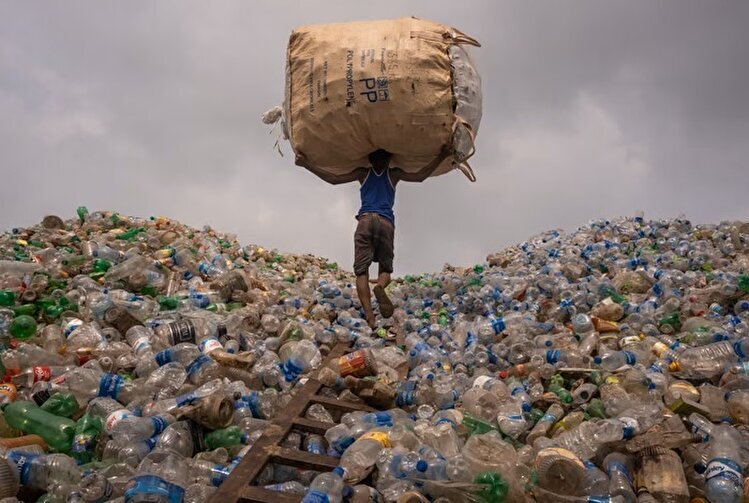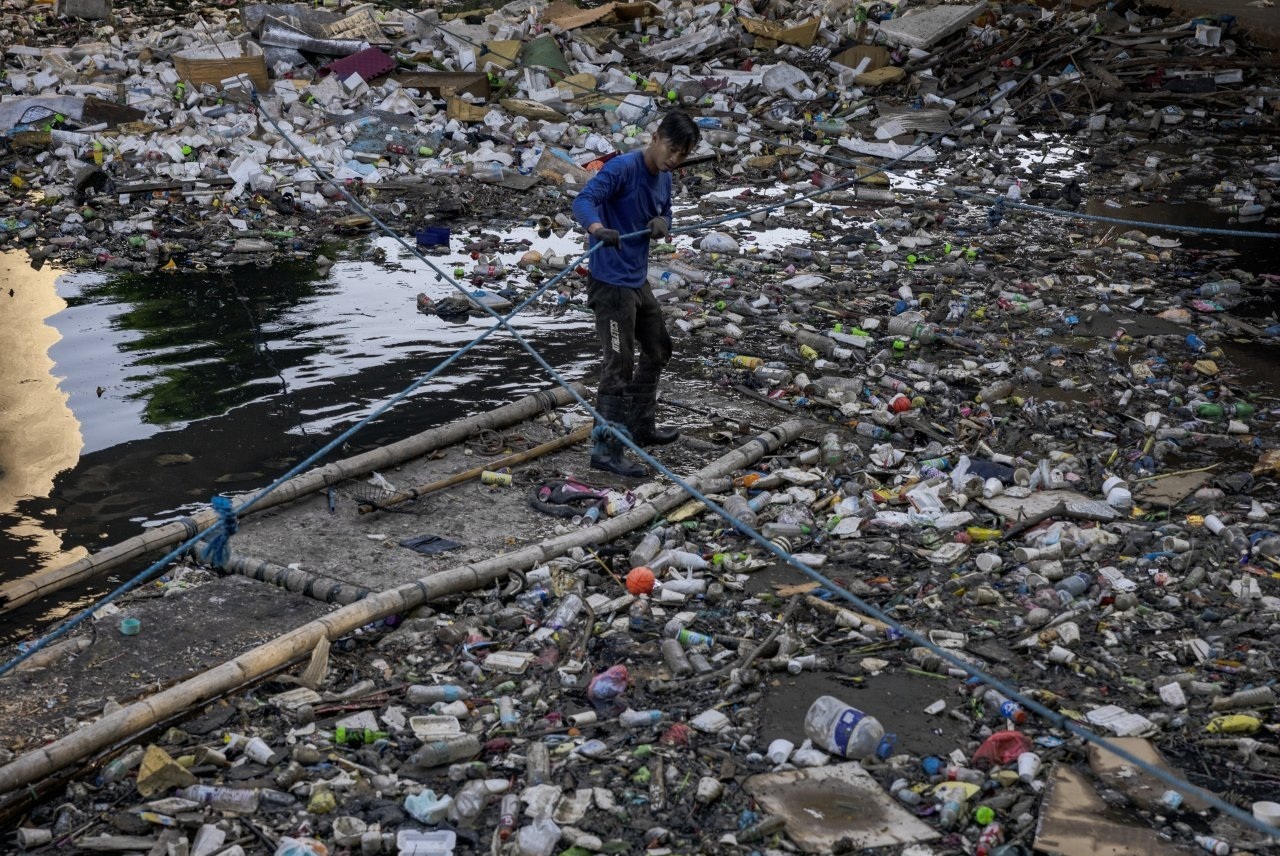New Findings on the Tragedy of Life on the "Plastic Planet"
TEHRAN (Defapress) - Plastic poses a serious and growing threat to human health and planetary survival. A new study published in The Lancet medical journal reveals that Earth is facing a "plastic crisis," with the world spending at least $1.5 trillion annually (equivalent to 135 quadrillion tomans) to address the health damages caused by plastic.

The root of this crisis lies in the explosive growth of the plastic industry since 1950, which has increased production 200-fold. By 2060, plastic production is expected to triple, exceeding one billion tons per year. While plastic has important uses, single-use plastics, such as beverage bottles and food containers, dominate the market.
Today, from Mount Everest to the deepest ocean trenches, over 8 billion tons of plastic pollute the planet, with only 10% being recycled. Plastic production contributes to air pollution, toxic chemical exposure, and the infiltration of microplastics into the human body. Plastic waste also fuels disease-carrying mosquitoes, as stagnant water in discarded plastic provides ideal breeding grounds.
This report comes ahead of the sixth (and likely final) round of international negotiations for a binding global treaty to tackle the plastic crisis. However, talks are currently deadlocked due to interference from major oil producers like Saudi Arabia and plastic industry lobbying.
Professor Philip Landrigan, an epidemiologist at Boston University and the study’s lead author, states: "The plastic treaty must include measures to protect human health and planetary survival. The impact of plastic pollution is especially severe on vulnerable groups, such as infants and children. This imposes heavy economic costs on society, and we must act urgently."

Oil-producing nations and plastic industry stakeholders argue that the world should focus on recycling rather than reducing production. However, unlike paper, glass, steel, and aluminum, plastic is not easily recyclable. This report is the first to reveal that recycling alone cannot solve the plastic pollution crisis.
Over 98% of plastic products are made from oil, gas, and coal. Producing 2 billion tons of plastic annually worsens Earth’s climate crisis, equivalent to the total CO₂ emissions of Russia, the world’s fourth-largest polluter. Additionally, more than half of unmanaged plastic waste is openly burned, further polluting the air.
Plastics contain over 16,000 chemicals. Microplastics enter the body through water, food, and air, infiltrating blood, brains, breast milk, semen, and bone marrow, significantly increasing strokes and heart attacks.
While plastic production may seem cheap, this is only true if we ignore its astronomical health costs. Otherwise, the plastic industry is the most expensive industry on Earth.
